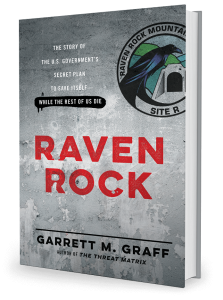
A slight change of pace this year: While I normally write this annual blog post sitting by the fire in Vermont, I’m actually writing it this year while sitting by the fire in the mountains of Conoor, India, while I’m on vacation at a friend’s tea plantation, which is—I have to say—every bit as lovely as it sounds. The clock is ticking down towards midnight, which will hit here ten hours and thirty minutes before 2012 will arrive in Washington. Between the extra ten hours to begin the year and the leap year in February, I’m likely looking ahead to 2012 as literally the longest year of my life.
This year I read widely as I normally do, but thanks to a lot of travel I did this year, I had the time and space to develop a theme in my reading: Big, enormous epic tomes that I could never read but for some dedicated long-haul flights. More than half of these books would be a month of normal reading on their own, 600- to 800-page doorstops, that I was able to tackle while I was out promoting my own 600-page doorstop of a book.
Here’s to the list:
1) The Secret Pilgrim by John Le Carre :: I read more than a dozen Le Carre novels this year, including the entire Karla trilogy, and so was unexpectedly rewarded by all of that reading when I got to Secret Pilgrim, which is in essence a spy’s memoir, telling tales, lessons, and rules of intelligence gathering to a new crop of agents, as he narrates many of Le Carre’s other tales and characters.
2) Hemingway’s Boat: Everything He Loved in Life, and Lost, 1934-1961 by Paul Hendrickson :: Early on in this masterful book, Hendrickson writes that his aim is “to lock together the words ‘Hemingway’ and ‘boat’ in the way that the locked-together and equally American words ‘DiMaggio’ and ‘bat’ or ‘Satchmo’ and ‘horn’ will quickly mean something in the minds of most people, at least of a certain age.” He succeeded impressively. He accomplished something truly masterful—what, I can say with all writerly envy, is the hope of any serious writer starting out: A project that will stand forever and can be read for years and years to come by generations yet unborn. It reminds me in richness, not just in related subject matter, of A. Scott Berg’s biography of Max Perkins, Editor of Genius, which nearly 40 years after its publication is still a masterful work of nonfiction, rich in personality, and densely packed. Rich, textured, and savory, a fulfilling meal not to be rushed or half-tackled, a project of such ambitious scope and expressing such a depth of knowledge as to overwhelm the reader with its sheer virtuosity. It’s reading works like his that I wish my reading comprehension (and retention) was better—reading it I know I won’t retain anything close to the amount that I wish I would. I read it nonstop on the cross-country Friday flight home, then read it much of following day, and finally finished it Sunday afternoon in an intellectual feast unsurpassed in the last year of my reading.
3) 1861 by Adam Goodheart :: My near life-long fascination with the Civil War shows no sign of slowing down, yet I’m running out of books that seem totally new. Most seem at this point to be highly specific niche books, but Goodheart’s history, published to mark the 150th anniversary of the start of the war this year, was surprisingly fresh—he argues that 1861 was not just beginning of the war, nor merely another year, but an idea, much like 1776 was in the United States. With remarkably gripping and detailed portraits and scenes, he told the story of that tumultuous year through a series of individuals and their decisions. Also this year I read Lincoln: A Novel by Gore Vidal, which I finally tackled during a swing to the Pacific Northwest this summer, and really enjoyed it. A great true tale told as fiction.
5) Steve Jobs by Walter Isaacson :: I was prepared to like this book a lot less than I did. It seemed too perfectly of a trendy book, done with too little distance. However, Isaacson did a superb job. In what has turned out to be by far the best-selling nonfiction book of the year, Jobs comes across not nearly as well as I thought he would; he seems like a brilliant man who was downright despicable in most of his relationships—a particularly confusing contradiction in a man so dedicated to Buddhism and a Zen lifestyle.
6) Gorky Park by Martin Cruz Smith :: This is probably one of the most famous thrillers ever written, and it’s been sitting on my bookshelf in Montpelier for over a decade. The story of a Moscow detective unraveling a murder, it’s a great Cold War tale that’s ultimately pretty sympathetic to Russian life.
7) Lenin’s Tomb: The Last Days of the Soviet Empire by David Remnick :: For the second year in a row, there’s a book by Remnick on my list, amusing only because Remnick actually has written only four books. I spent much of this year reading books on Russian history, as part of some initial research for my next book project, and so turned to Remnick’s classic of the fall of the Soviet Union early on in my studies. I also read this year David Hoffman’s Dead Hand, another great book on Russia—specifically on the Cold War and the multi-decade nuclear showdown between the U.S. and the Soviet Union—by another Post alum.
8.) Defection of AJ Lewinter by Robert Littell :: This is a small book, a tight darkly comic tale of a specific episode in the Cold War by the author of the majestic, sweeping novel of the CIA, The Company, which was a great read. Speaking of variations on an author’s theme, I read David Ignatius’s Sun King, which is the one novel of his that’s not a thriller, and which turned out to be a great, cutting, comic tale of Washington life.
9) Social Animal: The Hidden Sources of Love, Character and Achievement by David Brooks :: I’ve gone hot and cold on Brooks’s books before—I thought Bobos in Paradise was fantastic while I couldn’t even finish On Paradise Drive—so I wasn’t sure what to expect as I got into this quite-hyped new book. It turned out to be great, a wonderfully and imaginatively told story of how much of our life’s destiny and thinking is beyond our conscious control. The runner-up in the “imaginative life biography” category would have to be Bill Bryon’s At Home: A Short History of Private Life, which I’ve listened to on audiobook over two long car rides—he’s always been my preferred audiobook accompaniment for car rides—which tells the history of modern life through stories about each room of his house in England: The kitchen, the bathroom, the front porch, the telephone, and so on. The short version: Life was much more Hobbesian much more recently than I would have thought.
10) The Quest: Energy, Security, and the Remaking of the Modern World by Daniel Yergin. A follow-up to his Pulitzer Prize-winning history of oil, “The Prize,” expands his scope to include the general global energy picture and is in that respect every bit as interesting as one would expect. What surprised me, though, was that the first two parts of the book, taken together, are among the most provocative and lucid histories of the last decade that I’ve read anywhere. The other amazing book on recent history I read this year was Bethany McLean’s and Joe Nocerra’s All the Devils Are Here, about the financial crisis.
[Check here for my past lists: 2010, 2009, 2008, 2007, 2006, 2005, and 2004.]


Recent Comments